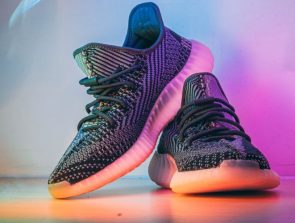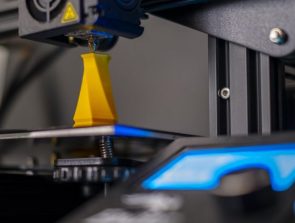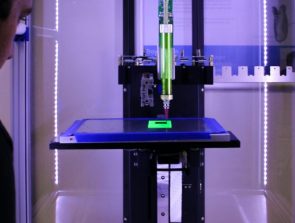Seminar Topics for ECE and CSE University Students
Universities and professionals in the education space are increasingly organizing seminars to give students an interactive experience. Seminars serve to spread information about new technologies while also demonstrating the practical real-life application of theory learned in classrooms.
Seminars can be organized on a variety of topics, and such events allow students to see the practical use cases of new technologies. Another added benefit of a seminar is the opportunity for students to network with like-minded students as well as interesting people. Following are examples of some topics which can be focused upon for a seminar in the ECE space:
Hydrogen fuel cells
Energy remains the big challenge of our times. A lot of interest is being shown in the area of hydrogen fuels and the hydrogen economy. It may prove to be a clean and sustainable source of energy.Mechanical and Electrical Engineering students can benefit from this topic.
Automated drip-irrigation system
Agri-tech is undergoing major innovation in recent times. Irrigation is one of the key areas in the entire agricultural process. Automating such a core function can lift the overall efficiency of agriculture in a significant way. Using micro-controllers with drip irrigation can be an excellent topic for a seminar. This may result in increased crop yields and less waste. With global water shortages and concerns of pesticide use, precisely controlled and automated systems have great promise in increasing food quality and alleviating global food shortages.
Processing of e-waste
One of the major challenges of future generations and the current population is figuring out a way to deal with tons of e-waste or electronic waste that is continuously and increasingly being generated by our voracious use of electronic devices. As it is, rich countries often ship their e-waste to poorer places where it is often burned or taken apart by human hands. A great topic for chemical and electrical engineers, processing of e-waste, extraction of precious metals, and re-use of components are all engineering-heavy processes. Showcasing such processes can be a great practical use case and “application of theory” topic for seminar attendees.
Paper batteries
Paper batteries are being talked about a lot in the academia and science circles. Plenty of innovative ideas can be generated by showcasing paper-thin film based batteries that use enzymes as a catalyst. Sustainable energy creation and power storage is a huge area for engineers to work in, and it is undergoing radical innovation as well.
Paper batteries can have multiple configurations. They can be cut in half or they can be stacked in parallel to increase power output. The impact of such a versatile power source on the designing of applications in a range of fields is what makes such a technology exciting. Such areas are excellent for seminars where use cases and new technologies can be showcased.
Electric bicycles
Electric bicycles can have many types of designs and power sources as well. A lot of things can be done in terms of cell types, battery types, and charging processes. The actual structural design of the bicycle also involves a lot of engineering. Again, an excellent topic for a seminar for electrical, chemical and mechanical engineering students.
Life detection system
Plenty of technological advancement has happened in the field of disaster management. Life detection systems are an example of such advancement. They use microwaves of a certain frequency range to identify and detect a human body behind materials and rubble. This technology is reported to be capable of detecting breathing and heartbeats through barriers as thick as 10 feet.
Brain gate and neurological systems
Brain Gate is a system of detecting brain signals, designed by a biotech company called Cyberkinetics. It involves using hair-thin electrodes to detect the intention of the brain and then process the signals through a chip (implanted in the brain) to then operate a robot or a computer. This is an excellent area of showcasing in a seminar the innovations in the field of biotechnology and electrical engineering.
Solar tree
Solar is the buzzword these days when it comes to renewable energy. Solar trees are a neatly designed set of solar panels, which are placed in a way as to mimic the leaves on a tree. Trees sustain themselves via a process called photosynthesis, which depends on capturing the maximum amount of sunlight. Solar energy efficiency is also dependent on the ability of a system to capture the most amount of sunlight. Such innovations, coming from developing economies like India, can be a great source of learning for seminar students.
8k resolution camera system
Digital video processing continues to reach new heights, increasing in quality every few months. From a few pixels, we have now seen 4k resolution enter the mainstream. The next frontier is 8k. Such a high resolution can be used not just for entertainment and leisure, but it also has a large market in teleconferences and telepresence. High resolutions result in large amounts of data, and hence innovation is needed not just in image processing, but also in data processing and communication networks. After all, we are talking about transmitting large amounts of GBs per second. Such consumer-facing technologies have potential of generating high interest in conferences.
Embedded systems for cars
Google has made driverless cars popular and well-known. To turn what was science fiction a few years ago into reality, such autonomous cars need an embedded system on board to process large amounts of signals and data. Advancement of technology in this space has generated great interest in embedded systems and smart systems in cars. This space has exploded with companies such as Uber and Tesla competing to create fully autonomous vehicles.
There are lots of innovations that a seminar can showcase in embedded car systems, from sensors and signals, to algorithms and safety features. It is also worth studying the network and communication details in such systems, as every aspect of the system has to be complaint with safety ratings of automobiles and has to have fail-safe features.
Attachable electronic skin
Electronic skin is an ultra-thin electronic device which can attach itself to the human skin. It is an amazing innovation with potentially huge consequences for the healthcare industry. Being in close contact with the human body, this electronic skin can measure body temperature, heartbeats, and other vital parameters. This constant collection of real-time data can then be fed into larger systems and preventive care can be imparted. Telemedicine can also get a huge boost from such data collecting systems. This is the next level up from devices such as the Fitbit.
Wearable footwear systems
It is said that the foot is the primary interface between the human body and the ground, and there is rich data that allows us to decode a variety of things. Thanks to advancements in sensor technology, we can now measure things like foot pressure, position, posture, and energy expenditure. Such data can lead to invaluable analysis for someone like an athlete or a patient with foot ailments. Nowadays, foot sensors can even geo-locate a person and can track the route traveled by a marathon runner or an expedition participant.
Silicon memory
Memory and storage is simply never enough. The more GBs a hard disk packs, the faster it gets filled up. The more TBs your digital storage has, the less it seems. This area of electrical engineering is ripe for innovation. Technology has progressed so quickly that we are now talking about storing our stuff on an atomic level. The latest memory technology is now dealing with disposing and transferring individual silicon atoms to pack in more bytes of storage in that sleek looking hard drive of yours. Silicon memory can be an excellent topic for a seminar because all of us can relate to it, since we all use digital storage after all.
Polytronics
Polytronics is adisruptive technology that has the potential to completely transform the way circuit boards are manufactured. Based on the novel idea of using a plastic material as a substrate, new generation circuit board manufacturing can be as simple as printing. The cost of manufacturing can also come down drastically through the use of such innovative techniques. Plastic substrate based circuit boards can also be recycled and reused, reducing e-waste. Other benefits of this technique include low power consumption, light weight, and versatility of the circuit boards.
Hawk-eye
Hawk-eye is a revolutionary technology used in the field of sports and sports broadcasting. It involves monitoring the trajectory of a moving object, like a ball, puck, or football and then using powerful data processing algorithms to predict the future or onward path of the object if it were to continue traveling. Hawk-eye is an excellent seminar topic for people interested in studying video signal processing and kinetics. Many people may not know about hawk-eye, but they have probably experienced its use while watching one of their favorite sports.
Supercapacitors
Supercapacitors are capacitors with energy density an order of magnitude higher than regular capacitors. They have potentially significant application in the auto industry, as they could someday replace the battery-starter combination. Supercapacitors have a long life cycle of over a million and can prove to be a reliable alternative to the starter. No moving components mean a lower chance of mechanical failure. Super Capacitors are also used in regenerative braking of automobiles. Any application which requires a short and rapid charge-discharge cycle is a potential use case for supercapacitors.
Consumer-facing robots
Artificial intelligence is the flavor of the current time, and robots are an excellent example of that. Robots have been in use at various manufacturing plants for quite some time now, but they still have not made their way in consumer-facing situations. However, that is now changing. Businesses like banks and restaurants are starting to experiment the use of robots to perform certain lower level human functions. Consumer-facing robots are an excellent area of research and a seminar can greatly benefit from having such topics as part of the event. The large variety of research disciplines are covered under robots, like speech recognition, visual and barrier detection sensors, navigation, text to sound conversion, etc.
Infrared plastic solar cell
Conventional solar cells are known to capture only about 35% of the total energy available from sunlight. Throw in a cloudy day and that efficiency drops further. Hence, scientists have now developed a special type of plastic solar cell which can capture not only the visible spectrum of sunlight, but also the infrared “invisible” spectrum. By combining a specially designed nano-scale particle called quantum dot, and then combining the quantum dot with a polymer, scientists have created the infrared plastic solar cell. Further refining this path breaking technology can greatly improve the efficiency of solar cells and take us one step closer to the ubiquitous use of solar energy.
Internet telephone
Skype, Vonage, and AT&T CallVantage are services which continue to grow in popularity. They offer a cheap, convenient and efficient way to communicate. These are all examples of internet telephone. We can even buy an analog telephone adaptor or ATA, which connects to our regular phone and turns it into an internet phone. This technology is a great way to showcase research in networks and analog-to-digital converters. There is a lot of software involved in the usage of this technology as well. Popular apps such as Whatsapp and Viber are shining examples of internet phone software. Hence, given the wide variety of technologies and research areas involved, internet telephone is a great option for a seminar topic.
Fuzzy logic
Fuzzy logic is a methodology of problem-solving in a control system. It is an empirical, experience-reliant way of taking actions rather than a mathematical model. For example, instead of dealing with speed = 5 mph, fuzzy logic suggests that we observe if 0 < speed < 5, and if the car is slowing down. If both those are true, then speed must increase. So, fuzzy logic involves a bunch of IF statements, and it is a unique and different way of approaching control system problems. Though fuzzy logic has not been very popular in the US, it has been used in EU and Japanese markets. Hence, fuzzy logic would be an excellent topic for a seminar, as one could look into how it succeeded in those foreign countries and what the use cases were for those manufacturers.
Nanorobotics
Nanorobotics is an emerging field of nanotechnology. It deals with a controlled way of manipulating particles or objects whose sizes are measured in nanometers. Such technology can have a great impact on areas such as space technology, digital memory and storage, genome and DNA research, nanodevices, optical antennas and more. Nanotechnology, in general, is a popular area of research and nanorobotics is equally well received. Hence, it can potentially be a good topic for a seminar.
Nuclear micro generator
Nuclear Micro Generators are like small batteries which convert radioactive energy into electrical energy. There is no fission or fusion involved as in a typical nuclear reactor. This type of innovative power source can have a huge impact in the area of MEMS. Micro Electro Mechanical Systems (MEMS) have not quite grown to the potential which they can reach because of the lack of an onboard reliable power supply. Nuclear Micro Generators can also help reduce battery sizes and enhance period of operation, as conventional batteries take up a lot of space. Another drawback of conventional batteries is that they cannot be shrunk below a certain size without sacrificing power capacity. Nuclear Micro Generators are one of the most exciting topics in scientific communities and hence can generate a lot of interest at a seminar.
Polymer LED (PLED)
Polymer LEDs are light emitting diodes which use a polymer-based material as the emitting layer. Current OLEDs use crystalline inorganic semiconductor material for the emitting layer. That composition results in processing the light several times before we see the images that are present on screens, phones, etc.
Use of PLEDs can save all of that processing and makes the entire system simpler and efficient. The manufacturing process of PLED is also a lot simpler than a conventional LED. While there are exciting aspects of PLEDs, there are challenges as well. There are issues with durability of the LED and also the quality of the display color. Such challenges provide opportunities for researchers to further refine the technology. Hence, PLEDs can be a great seminar topic so as to spread awareness about the benefits and challenges related to the technology.
Holographic Versatile Disc
Holographic Versatile Disc or HVD is the latest in optical disc technology. HVDs allow significantly higher storage capacity and also vastly improve data transfer rates. Digital storage is a very active field of research with fast and continuous improvements. HVDs involves a beam entering a crystal at a particular angle to store data. The retrieval of data follows a similar procedure, where the beam is again fired into the crystal at the same angle that was used for storage. The beam is then refracted by the crystal to allow recreation of the page which was stored. A lot of optics is involved in HVDs and it can be a unique topic for a seminar.
Hands-free driving
In an effort to make cars safer and to avoid accidents, new technologies are emerging. One such technology is hands-free driving. Following on from the statistic that most car accidents happen due to driver mistakes, hands-free driving aims to minimize driver mistakes by handling certain functions for the driver. There are various sub-technologies within hands-free driving such as Adaptive Cruise Control and Forward Collision Warning. Both these technologies require the use of sensors, processing of large amounts of data and control system design. This is potentially a great seminar topic for electrical, computer and mechanical engineering students.
ATM customer identification
ATMs are often in the news for fraud-related crimes. They run on older technologies, where the identity of a customer is verified with just a card and a matching PIN. However, with advancement in technologies and ubiquitous knowledge of hacking easily available online, criminals have become smarter than they were a decade ago. This has made common people vulnerable to ATM-related crimes. Thus, there is a pressing need for using technologies to improve the verification process and the security of transacting at an ATM.
Visual and face recognition can be one such security enhancing feature. It involves technologies such as optics, data processing, and software algorithms. ATM customer verification and identification can be a high-interest topic for a seminar, as most visitors can relate to using an ATM.
Captcha
Captcha is something we have all experienced. Whenever we sign up for something, vote in an online poll, or log into an account, we are asked to either read a distorted text, click on some images, or add up some numbers. These are all examples of captcha. They are used to keep out automated programs and bots.
Bots are known to distort online polls, sign up for hundreds of fake accounts in minutes, and create all sorts of security/operational issues for host websites as well as online services. While captcha seems a simple solution, the research that goes into creating an effective captcha is quite complex. One needs to not only understand the ability of current computer programs, but also study where human intelligence is in relation to a computer’s ability. This is a very intriguing area of scientific research, and it can be a great showcase topic for a seminar.
E-bomb
E-bomb is an attack weapon in the event of war or a major crime. Instead of attacking people or physical property, the e-bomb attacks our electronic devices. It works on the principle of electro-magnetics, where a strong electric field is generated. This field results in production of significant levels of transient voltage on conducting materials such as exposed wires, circuit boards, etc. and destroys electronic devices. We are so heavily dependent on electronic devices these days, that an e-bomb will have a crippling effect on everyday life. Though not an easily apparent topic for a seminar, e-bombs are sure to generate quite a bit of interest in any event.





